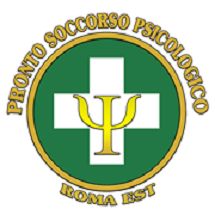
__________________________________________________
PSYCHOLOGICAL FIRST AID BUNGOMA KENYA
Trauma Recovery Techniques
VICTIMS /RESCUERER /PERPETRATOR TRIANGLE
The trauma Relationship structure

When children are in a trauma situation they are part of relationship triangle. The triangle consist of the
victims (the child) the rescuer (those whom the child expects or hopes will rescue them from trauma),
and the perpetrator (the one who abuses or neglects).Long after the original trauma, survivors often re-
create victims /rescuers / perpetrator triangles in their interpersonal relationship. They are motivated to
re-create the triangles and assume various roles in an effort not to have to feel uncomfortable feeling of
helplessness that result in trauma histories .In the re-creation, survivors may assume any role on the
triangle.
When survivors assume the role of victims they seek out relationship with abusers, or they induce or
perceive abuse from others .This provides reenactments of the trauma relationship structure .When
survivors induce the abuse, rather than wait for it happen, they feel some sense of control over their
lives. They do not feel completely helpless because they know when the abuse will happen .And they
hope this relationships, will have a different outcome than previous abusive relationships, which will
finally offer them relief from their belief that they are unworthy and unlovable.
Survivors can also assume the role of rescuer. In this role they make irrational attempt to undo the
badness of trauma , generally the badness they associate with themselves .One goal is to avoid feeling
helpless by helping others .They believe that they can do enough good to make up for the bad that has
been done , or the badness they perceive in themselves . In the roles of rescuer, survivor do not simply
perform appropriate acts are driven and compulsive, unable to balance generosity with honoring their
personal needs.
In the role of perpetrator (aggressor), survivor also try to undo the trauma. When they hurt others, even
in modest ways, it gives them some sense of control of situation where they would otherwise feel
helpless, vulnerable. Uncomfortable, overwhelmed, etc. And when they hurt others, they attempt to
cancel out their own trauma injuries by “balancing the score” this differs from appropriate effort to
themselves .In fact, it guantntees further relationships difficulties.
The goal is for survivors “get off the triangles” altogether and avoid being locked into rigid polarized
roles .Instead of being a victims (an extreme role) .it is important for them to realize that there are times
they will need others ‘help .Instead of being a perpetrator or wanting to hurt others (an extreme role), it
is important for them to realize that there will be times that they need to be firm, assertive and set
boundaries.
Survivors are more apt to stay off the triangle if they recognize and anticipate events that are likely to
induce them to assume one roles on the triangles .The next step is to ground themselves in the and then
make behavior choices consistent with that that reality, rather than acting as victims a rescuer or
perpetrator .The real solution for survivors is to learn to feel their feelings and keep themselves safe,
rather than assuming a triangle in order to avoid their feelings.
RESEARCHED AND WRITTEN BY PSYCHOLOGIST
ISAYA KUTOYI
Email: isayawk@gmail.com
__________________________________________________
COPYRIGHT 2019 - 2020
STUDIO DI PSICOTERAPIA DEL DOTT. GIANNI LANARI

Piazza Sempronio Asellio 7
( fermata METRO GIULIO AGRICOLA )
ROMA
P. Iva 06019411005 - Tel. +39 0622796355
ATTENZIONE
I componenti della rete del progetto "Pronto Soccorso
Psicologico Roma Est" non offrono cure, supporto o consigli
immediati per le persone in una crisi suicida.
Per tale tipo di emergenza chiamare il 118 o il 112.
Ogni componente della rete del "Pronto Soccorso Psicologico
Roma Est" contribuisce al progetto in maniera pienamente
autonoma ed è quindi responsabile individualmente -anche sul
piano legale- del proprio operato.